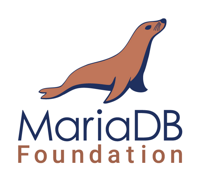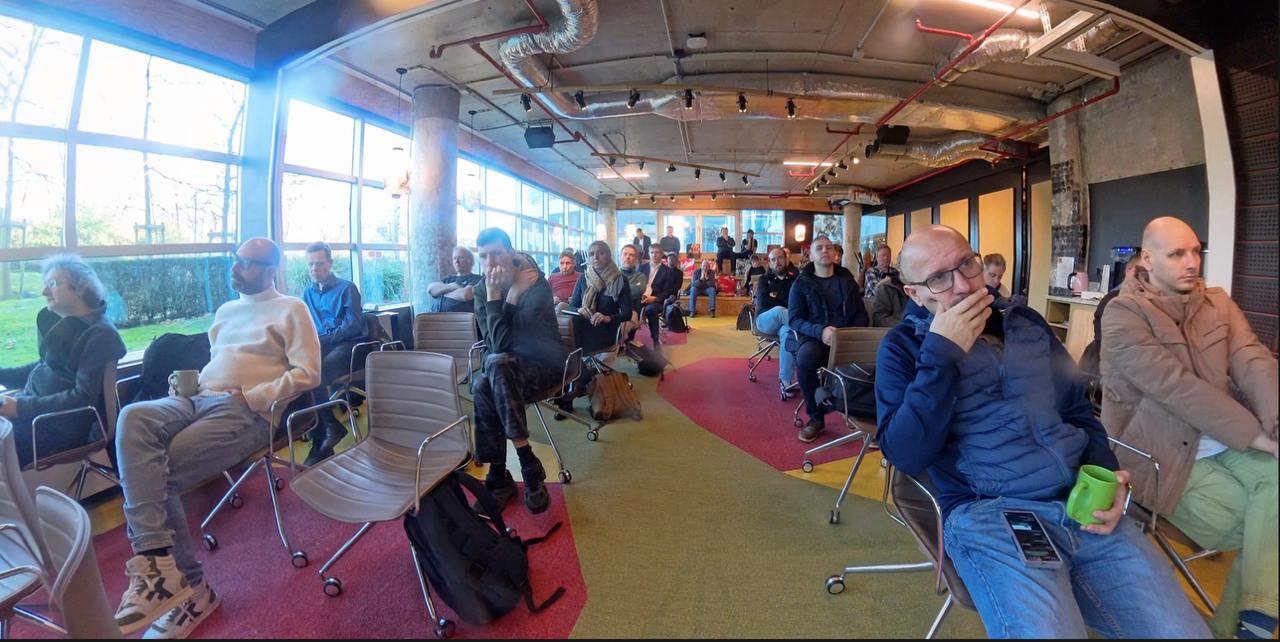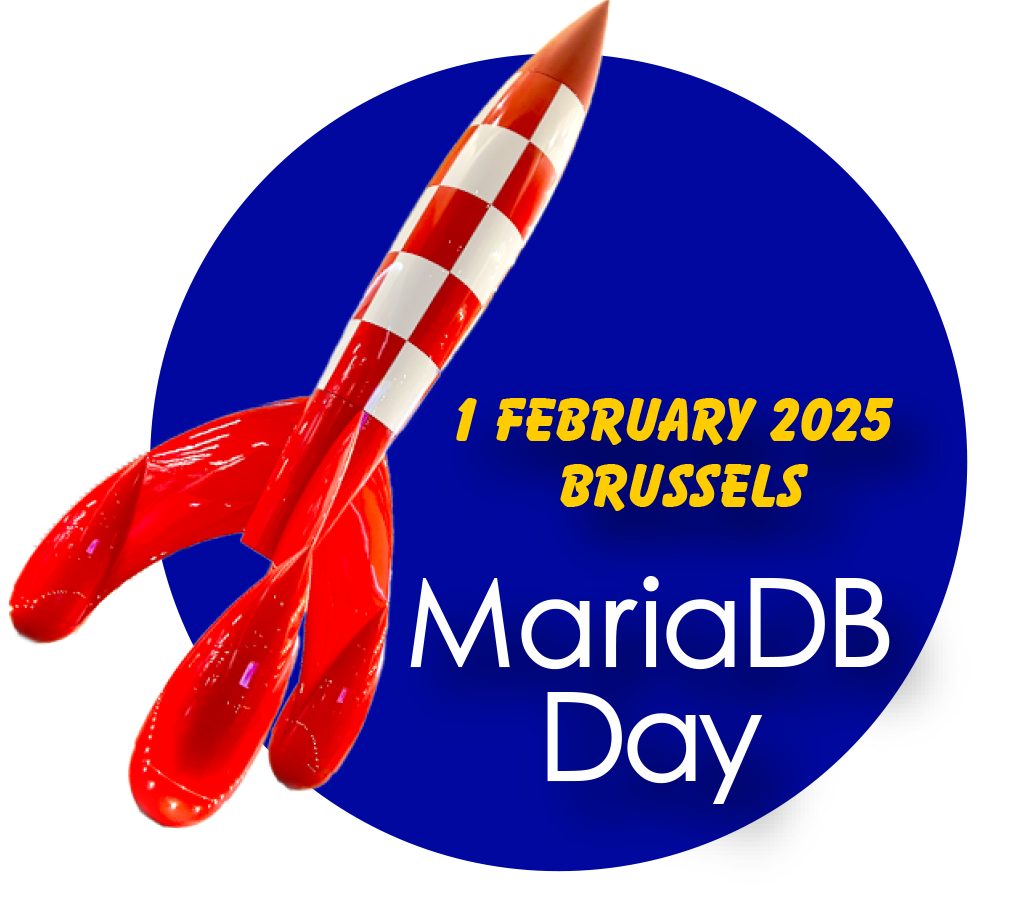Openness, Adoption, Continuity: You’ve heard me repeating our mantra like a broken record. Today is the next episode – and the theme du jour is about our Board Meetings, which we have minuted publicly on https://mariadb.org/bodminutes/ since October 2020.
At last Wednesday’s Board Meeting, we made quite a few important decisions – let me draw your attention to them in this separate blog entry.
Ex officio: Michael Widenius and Sergei Golubchik
First, we properly documented the special role of our founding Board members, Michael Widenius and Sergei Golubchik.
…
Focus, focus, focus! That’s the mantra of any successful organisation. With great input from our Board, we’ve managed to condense our strategic planning for 2025 into six goals.
Refiguring the process – from descriptive to prescriptive
Our goal setting started from mapping out our activities 2024. I asked myself: “How can we describe what we do on one page?”. There were 38 activities – think “Scrum Epics” – in 6 areas.
Guess what? That’s too many. No Board member is interested in that level of detail. Oh well, I should have known.
Back to the drawing board.
…
Continue reading “This month in MariaDB Foundation: Jan 2025”
The MariaDB Foundation is pleased to announce the availability of MariaDB 11.8.1, the Release Candidate (RC) in the long-term MariaDB 11.8 release, and MariaDB 11.7.2, the latest Generally Available (GA) rolling release.
See the release notes and changelogs for details, as well as the MariaDB 11.8.LTS announcement.
Release Notes Changelog What is MariaDB 11.8?
Release Notes Changelog What is MariaDB 11.7?
…
Continue reading “MariaDB 11.7.2 and MariaDB 11.8.1 now available”
Confirming what you probably already expected: MariaDB Server 11.8 will be a long-term support release.
Now a Release Candidate – GA in May
With MariaDB Vector as the lead new feature, MariaDB 11.8 succeeds the previous LTS MariaDB 11.4 from a year ago.
As of now, MariaDB 11.8 is at the Release Candidate stage, with GA planned for May.
Lots of new features since MariaDB 11.4
MariaDB 11.8 has about 60 features, large and small, on top of the previous LTS, MariaDB 11.4. At our recent MariaDB Day on 1 Feb 2025 in Brussels, MariaDB Corporation Chief Architect Sergei Golubchik gave an overview of 11.8.
…
Back from Brussels! With a bit of time to reflect, I’d like to share the aftertaste from our MariaDB Day, our very own FOSDEM Fringe Event. Prepare for an information-packed blog entry with links to the presentations, including live recordings and often the slide decks.
Billionaire controversy cancelled
Brussels during the first weekend of February is a hotbed of Open Source. The weather might not be hot, in contrast to the discussions in the corridors and rooms of the ULB university. The hottest topic expected – boycotting the presentation of Twitter founder Jack Dorsey – didn’t really happen.
…
The MariaDB Foundation is pleased to announce the availability of MariaDB 11.4.5, MariaDB 10.11.11, MariaDB 10.6.21 and MariaDB 10.5.28, the latest stable releases in their respective long-term series (maintained for five years from their first stable release dates).
See the release notes and changelogs for details.
Release Notes Changelog What is MariaDB 11.4?
Release Notes Changelog What is MariaDB 10.11?
…
Continue reading “MariaDB 11.4.5, 10.11.11, 10.6.21 and 10.5.28 now available”
Still unsure about attending the MariaDB Day in Brussels on Saturday? Here are four reasons to turn up at our FOSDEM Fringe event.
1. Discover blazingly fast Vector search
Learn how to power your latest AI app with MariaDB Vector. Mark Callaghan has been testing its performance and the results are amazingly fast compared to Postgres’ pgvector. Check out part 1, part 2 and part 3 of his blog.
2. Meet the people behind MariaDB
At MariaDB Day you will find several people from MariaDB Foundation, Company and partners: Sergei Golubchik, Vicențiu Ciorbaru, Otto Kekalainen, Peter Zaitsev, Kristian Nielsen, Roman Nozdrin, Jags Ramnarayan, Diego Dupin and Kaj Arnö.
…
Continue reading “Four reasons to visit MariaDB Day in Brussels”
Here comes the Q4 2024 contributions report. The raw data which contains also statistics until today can be found on GitHub, here.
Server contributions
Just like last quarter, I’m going to start with a breakdown of all the organisations who have contributed to MariaDB Server during 2024.
| MariaDB Plc. | 31 | 1707 |
| MariaDB Foundation | 9 | 201 |
| Codership | 7 | 103 |
| Amazon | 12 | 51 |
| Independent | 19 | 48 |
| GSoC | 3 | 14 |
| Arch Linux | 1 | 6 |
| Alibaba | 1 | 4 |
| IONOS | 1 | 4 |
| Workato | 1 | 4 |
| Rakuten | 1 | 3 |
| OpenBSD | 1 | 2 |
| HardenedBSD | 1 | 2 |
| University of Sydney | 1 | 2 |
| Arm | 1 | 1 |
| ClearCode | 1 | 1 |
| FreeBSD | 1 | 1 |
| IBM | 1 | 1 |
| NetBSD | 1 | 1 |
| Chainguard | 1 | 1 |
| CloudLinux | 1 | 1 |
| TOTAL | 96 | 2158 |
MariaDB Server contributions for from 1st January 2024 – 31st December 2024
We can see some new names compared to the Q3 2024 report, with contributions from CloudLinux, NetBSD and Workato.
…
Continue reading “MariaDB Contribution Statistics, January 2025”






